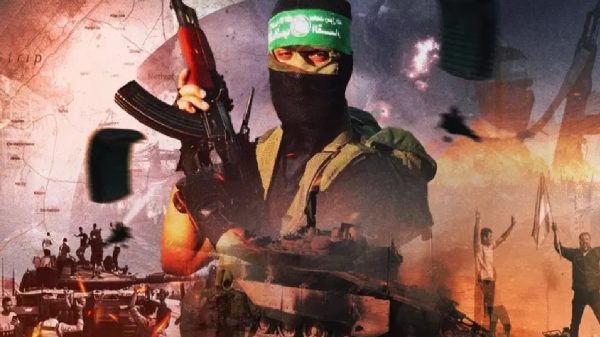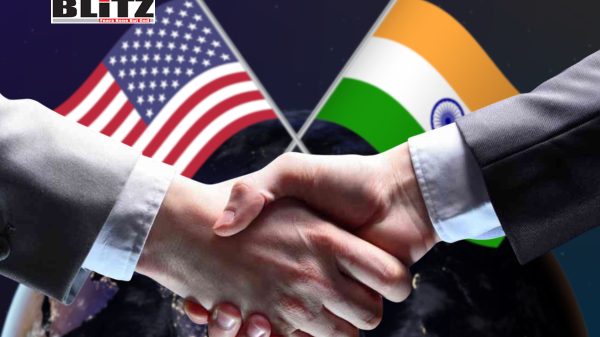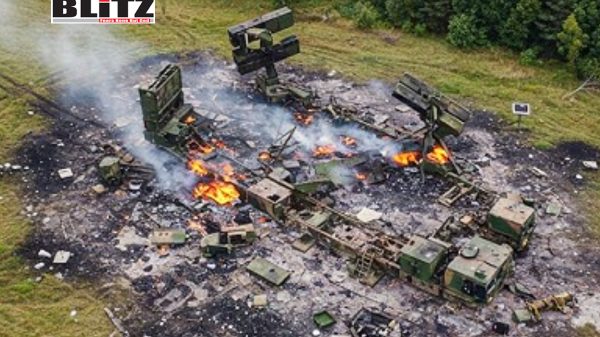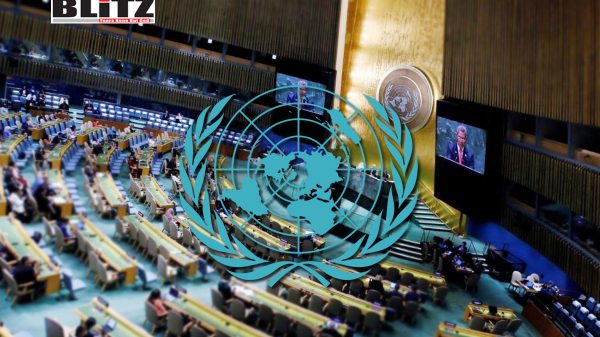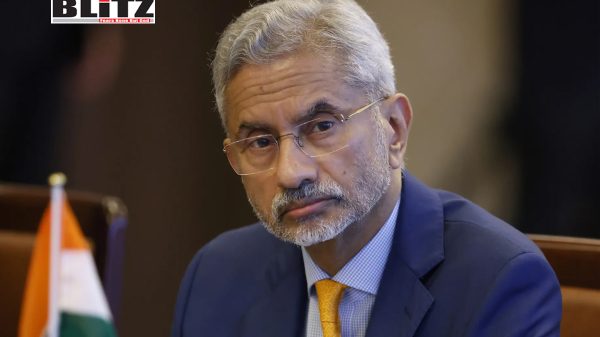Disposable yet indispensable refugees and the precarious backbone of the global economy
- Update Time : Tuesday, October 7, 2025
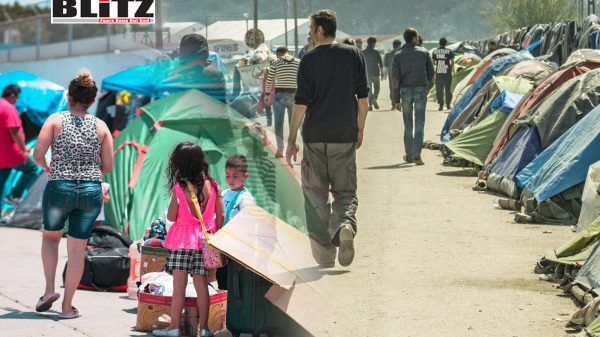
Refugees today stand at the uneasy intersection of desperation and economic necessity – indispensable to the functioning of global markets yet treated as disposable in both policy and practice. In every corner of the world, from the garment factories of Turkey to the domestic work sectors of Poland, from demolition sites in Japan to informal markets in Bangladesh, refugees have become structural components of national labor systems. They are absorbed into the global economy not as rights-bearing workers, but as a reserve army of low-cost laborer whose vulnerability ensures their compliance.
This growing dependency between refugees and markets is not the result of benevolent inclusion, but of a systemic failure to uphold the promise of protection. Host governments continue to resist granting refugees full work rights, while major donor countries are slashing humanitarian aid budgets. The closure of USAID in the United States is an emblem of this retrenchment, representing not just a bureaucratic shift but a profound rupture in the global humanitarian architecture. As traditional aid dries up, refugees are left with little choice: either find informal, precarious work or face destitution.
Across continents, the patterns are disturbingly similar. Refugees’ integration into labor markets is selective and uneven – shaped by arbitrary distinctions between “deserving” and “undeserving” populations. States are increasingly allowing limited groups of refugees to access certain jobs, often framed as a humanitarian gesture or a step toward “self-reliance.” Yet these legal reforms rarely translate into meaningful economic participation.
In Poland, Colombia, and Jordan, for example, formal access to labor markets exists on paper but is undermined by bureaucratic red tape, anti-refugee sentiment, and austerity-driven cuts to development programs. Even when refugees are allowed to work legally, they remain confined to the lowest rungs of the economic ladder. In Colombia, millions of Venezuelan refugees with professional skills remain trapped in informal sectors despite the government’s progressive policies. In Poland, Ukrainian refugees granted swift work authorization under a “special law” have encountered structural barriers and growing political hostility, transforming the promise of opportunity into a ceiling of underemployment.
The logic behind these policies serves both political and economic ends. Governments can tout inclusionary gestures to international audiences while sustaining domestic narratives of control and sovereignty. Meanwhile, employers gain access to a cheap, flexible labor force. Markets absorb refugees into their supply chains – but always on discounted, disadvantageous terms. This duality makes refugee labor profitable precisely because it is governable through fear and selective inclusion.
The economic marginalization of refugees cannot be separated from broader political trends. Around the world, populist and nationalist movements have weaponized fear of migrants and refugees to consolidate power. Despite extensive research demonstrating that refugee inflows have no systematic negative effects on native wages or employment, the myth of economic threat persists. Refugees have become convenient scapegoats for deeper structural crises – from inflation and inequality to housing shortages and failing public services.
At the same time, neoliberal globalization – long justified by the rhetoric of free markets and mobility – is entering a phase of contraction. The unmasking of Western double standards, particularly in the wake of crises such as Gaza, has accelerated this breakdown. Refugees are caught in the crossfire of this paradigm shift: marginalized by rising protectionism, yet essential to economies that depend on their labor.
As global trade slows and aid diminishes, the displaced find themselves bearing the brunt of economic shocks. Their work – often informal, seasonal, and unregulated – becomes the shock absorber of capitalist volatility. The profits of global supply chains depend not only on the exploitation of refugee labour but also on its disposability. Refugees can be hired and fired with impunity, excluded from legal protections, and blamed for the very precarity they endure.
One of the more insidious developments in refugee policy has been the rise of the “self-reliance” narrative. Framed as empowerment, it effectively shifts the burden of survival from the international community to refugees themselves. In Uganda, for instance, refugees are encouraged to build livelihoods and integrate economically – but often in markets stripped of social safety nets. As anthropologist Georgina Ramsay argues, this model transforms exploitation into a survival strategy and a business model for host economies.
The rhetoric of self-reliance conveniently masks structural inequalities. It allows donor governments and aid agencies to withdraw financial support under the guise of sustainability. Meanwhile, refugees remain confined to informal economies where their labour is undervalued and unprotected. In Jordan, where the much-heralded “Jordan Compact” once promised formal work permits for Syrian refugees, crackdowns on migrant labor have pushed them back into illegality. The message is clear: refugees are welcome to contribute economically – but only as long as they remain invisible, cheap, and controllable.
From Japan to Brazil, the stories of refugee labor reveal a consistent global pattern. In Japan, Kurdish asylum seekers live in a perpetual state of limbo, denied legal recognition yet surviving through demolition work and informal community networks. In Brazil, despite a generous legal framework for refugee protection, racial and class hierarchies exclude Black and migrant women from decent employment. The supposed generosity of policy is thus belied by structural neglect and discrimination.
In Malaysia and Bangladesh, Rohingya refugees represent perhaps the starkest case of this global dynamic. Barred from formal employment, they survive through informal livelihoods that leave them exposed to exploitation, abuse, and deportation. And yet, their labor sustains local economies – from construction to manufacturing – in ways both governments and employers depend on but refuse to acknowledge.
These examples underscore the central paradox of refugee labor: it is both integrated and excluded, necessary and deniable. The world economy depends on refugees’ work, but the political order denies them recognition.
What emerges from this global mosaic is not a humanitarian crisis alone but a systemic economic arrangement. Refugees form a distinct category of vulnerabilized labor – a population made profitable through its precarity. They are indispensable to the functioning of capitalism, yet kept disposable through legal and social exclusion.
This is not simply a refugee issue; it is a mirror held up to the global economy itself. The same mechanisms that exploit refugees also undercut local workers, deepen inequality, and erode labor rights across borders. The global trend toward informality – accelerated by automation, outsourcing, and deregulation – binds citizens, migrants, and refugees alike into a single precarious workforce.
In this light, defending refugee rights is inseparable from the broader struggle for fair and dignified labor. As aid contracts and borders harden, the real question is not whether refugees will work – they already do – but under what conditions, and for whose benefit.
The current system offers containment, not inclusion. It perpetuates a two-tiered global economy where the displaced are invited to toil but denied belonging. If the world continues down this path, refugees will remain the silent enablers of prosperity they cannot share in.
But moments of rupture, like the one we are living through, can also be moments of transformation. As the old neoliberal order falters, there is an opportunity – perhaps fleeting – to rethink how labor, rights, and mobility intersect. Aligning asylum regimes with international law, ensuring decent work for all, and dismantling hierarchies of belonging are not utopian ideals; they are economic imperatives for a sustainable future.
The displaced are not outsiders to the global economy – they are its backbone. Recognizing this fact is the first step toward a new paradigm: one where refugees are no longer treated as disposable assets, but as equal participants in a shared human enterprise. Until then, the paradox of being indispensable yet unwanted will remain the defining reality of the refugee condition in the 21st century.


